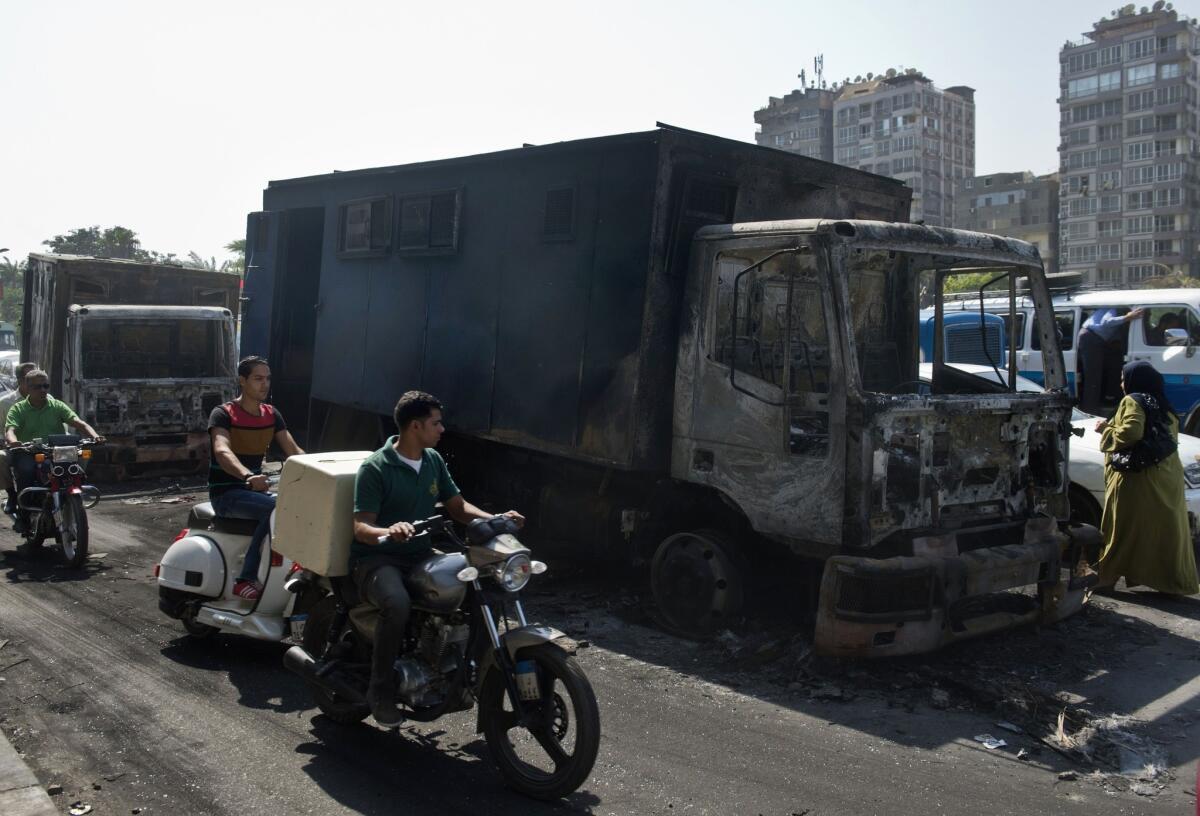Egypt attacks could signal more widespread violence

CAIRO — A series of attacks against military, security and government-linked targets rattled Egypt on Monday, a day after violent street clashes on a military holiday left more than 50 people dead and at least 250 hurt.
Masked assailants opened fire on a military patrol near the Suez Canal city of Ismailia, killing six soldiers including an officer, according to state media. Earlier, a powerful car bomb went off outside a security headquarters in the Sinai peninsula, killing at least two people and wounding dozens of others, Egypt’s Interior Ministry said.
And in the most unusual of the strikes, at least one rocket-propelled grenade was fired before dawn at the main government-run communications installation in a normally tranquil Cairo suburb. While damage to the compound was reported to be minor, affecting only one satellite dish, it could signal determination on the part of attackers to take aim at vulnerable civilian infrastructure.
The Sinai blast, too, suggested a potential expansion of the scope of fighting in the rugged peninsula. The attack took place in the town of el-Tor, in an area somewhat removed from the swath of northern Sinai where the military launched a major offensive against Islamist groups more than a month ago. It lies closer to the Red Sea tourist center of Sharm el-Sheikh, one of the very few parts of Egypt where a tourism free-fall has been avoided.
There was no immediate claim of responsibility in any of the attacks, but the interim government remains locked in conflict with Islamist groups, three months after the military stepped in amid a wave of popular protests and toppled Islamist president Mohamed Morsi. Morsi’s followers in the Muslim Brotherhood, who flooded the streets on Sunday during celebrations marking the anniversary of the 1973 war against Israel, have vowed to return to key sites on Friday, the main Muslim day of prayer.
In the aftermath of Sunday’s fighting, the resolve of both sides appeared to harden, setting the stage for a new round of violent confrontations. The government described anti-army protesters as foreign agents and terrorists and said they would be dealt with harshly. Meanwhile, the Brotherhood renewed demands for the reinstatement of Morsi, the country’s first democratically elected president, and said it would continue to send its followers into the streets to challenge security forces.
ALSO:
Under U.N. eye, destruction of Syrian chemical weapons begins
U.S. raids in Libya, Somalia reflect shift away from drone strikes
Vehicle at Mexican ‘monster truck’ show plows into crowd, killing 8
More to Read
Sign up for Essential California
The most important California stories and recommendations in your inbox every morning.
You may occasionally receive promotional content from the Los Angeles Times.










